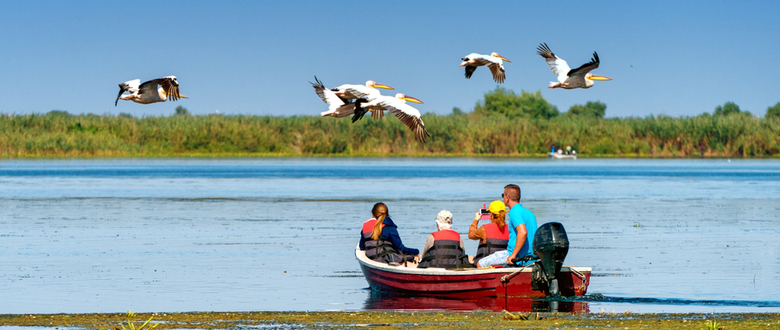Tulcea debate on the coverage of communications services in the Danube Delta
27.05.2021

┬Ā
ANCOM, with the support of the County Council of Tulcea, organised a conference in Tulcea for informing the public on the availability of mobile voice and internet services and on the involuntary roaming risk in the Danube Delta area. The tourism potential of an area depends, among other factors, on the availability of telephony and internet services in that area. In the Danube Delta this issue acquires greater importance, as there are wide areas of wilderness and areas with limited transport options. ANCOM and the local authoritiesŌĆÖ representatives analysed the availability of communications services in this area with such an important potential for Romania and reviewed the instruments for increasing the connectivity level of this area.
Coverage of communications services in the Danube Delta
The data collected and processed by the Authority during the recent yearsŌĆÖ extensive campaigns for monitoring and verifying the coverage of mobile voice signal are available to the general public on an electronic information platform, www.aisemnal.ro, where the interested entities can check the level of mobile servicesŌĆÖ coverage across the country.
During the monitoring campaign carried out in 2020, ANCOM also carried out measurements along all the tourist routes in the Danube Delta, which showed that the areas with no mobile voice signal were Lake Puiu and Lake Ro╚Öu. The areas with signal at sensitivity limit are: ╚śontea Creek, Stipoc Channel, C├ó╚Öla Lake, Somova Creek, Telincea Lake, Chilia Veche, Sulimanca Channel, Mati╚øa Lake, R─ād─ācinoasele Channel, Cardon Channel, Periprava, Musura Bay, Letea (Sfi╚Ötofca), Sireasa Channel, Mila 35 Channel, and part of Tulcea.
Moreover, taking into account that the Danube Delta lies near Romania's borders, there is a risk that users will engage in involuntary roaming, i.e. their equipment may connect to the network of providers operating in neighbouring countries - Moldova and Ukraine. In the Danube Delta, areas at risk of involuntary roaming are mainly in the northern part, on the border with Ukraine.
Fostering the roll-out of electronic communications networks
An instrument that fosters the roll-out of electronic communications networks is Law no. 159/2016 on the regime of physical infrastructure of electronic communications networks, and on setting measures to reduce the cost of installing electronic communications networks (Infrastructure Law). This normative act was specially designed to support the authorities and the providers of electronic communications networks in network deployment and roll-out, by laying down transparent and non-discriminatory procedures for concluding contracts of access on public property, by allowing greater flexibility as regards the legal instrument for establishing the right of access to public or private property, and by regulating measures meant to facilitate the actual building of networks.
The Infrastructure Law (Law no. 159/2016) creates the favourable framework for the free access of network providers to physical infrastructure projects carried out with the participation or support of central or local public administration authorities or financed ŌĆō fully or partially - from public funds.
The Conference in Tulcea
The event brought together representatives of the County Council of Tulcea, of various institutions of the local public administration, of private entities in the field of tourism, local NGOs involved in environment protection or in tourism promotion, in order to define the problems encountered by the local authorities and the local providers, and to identify applicable solutions.
┬Ā


 top
top